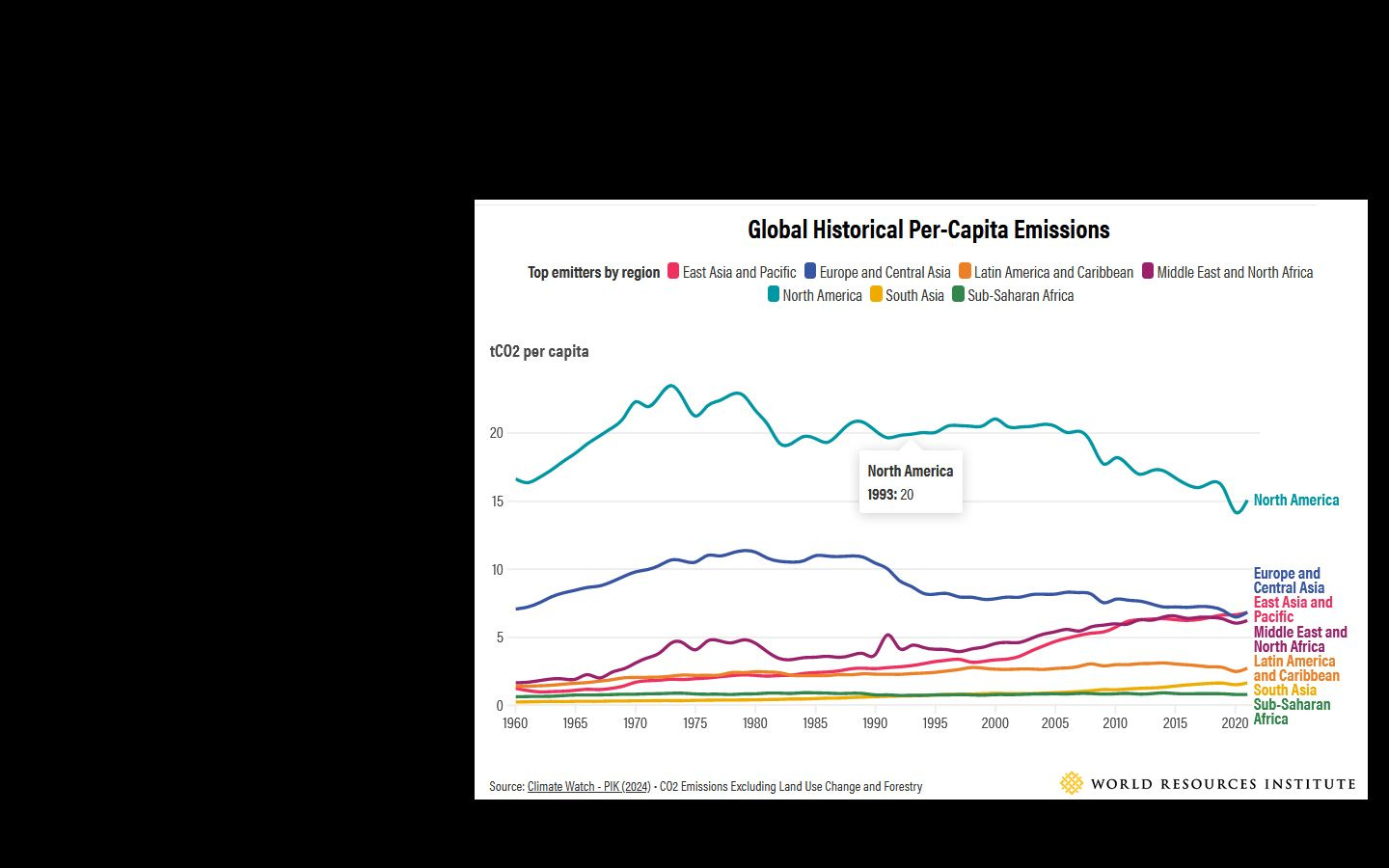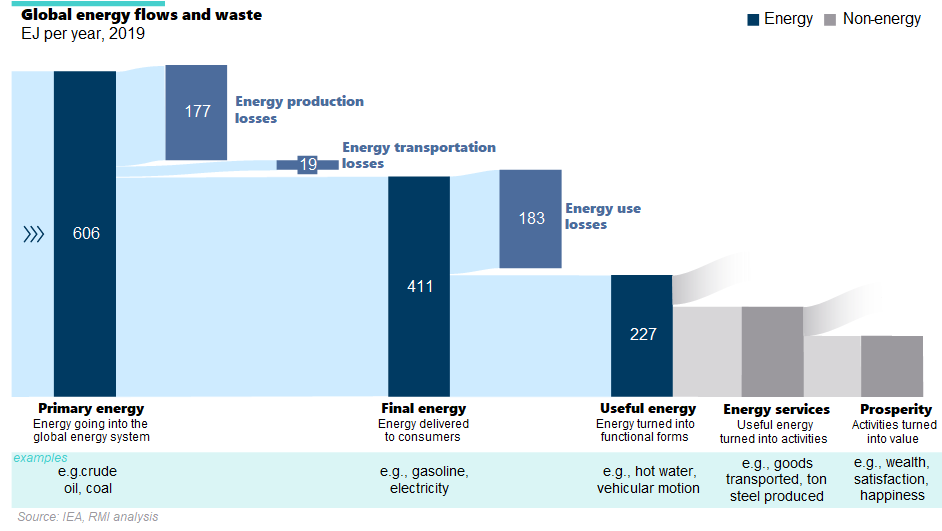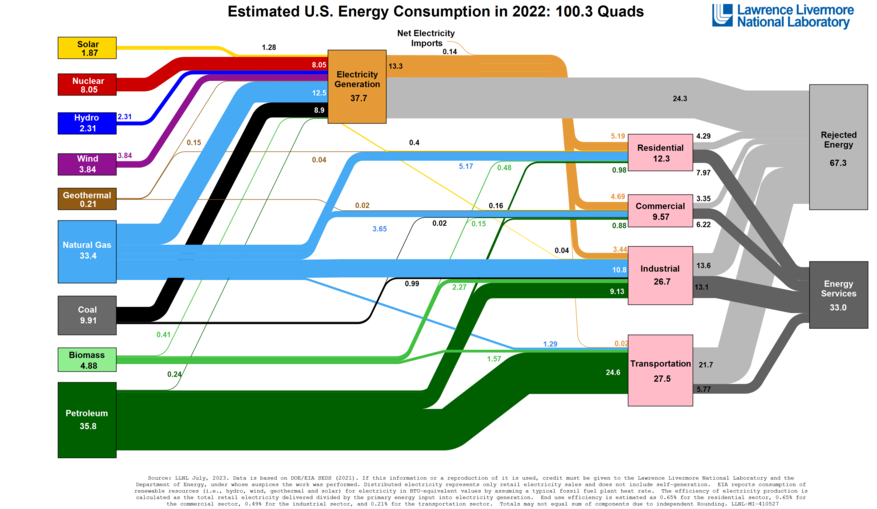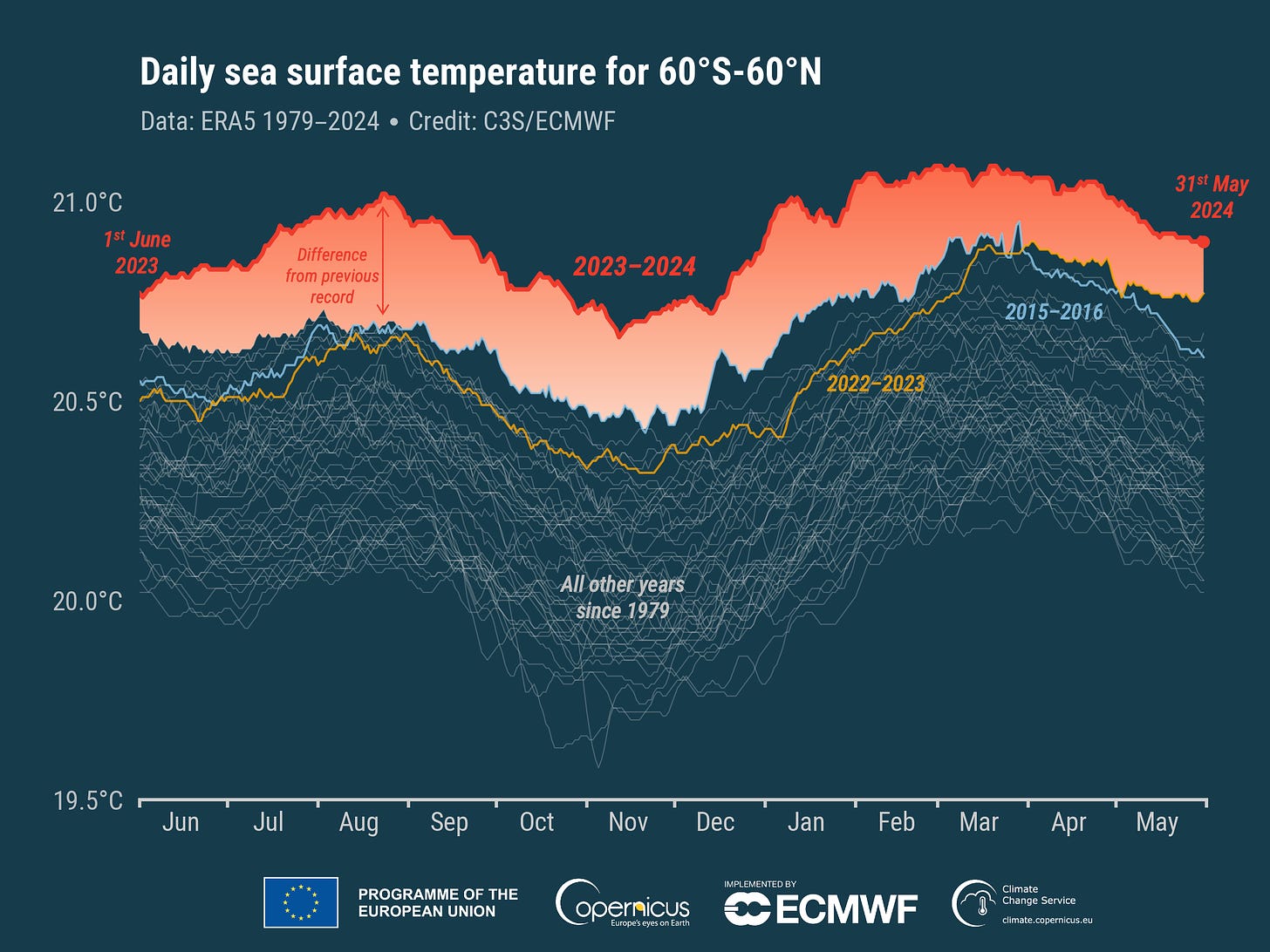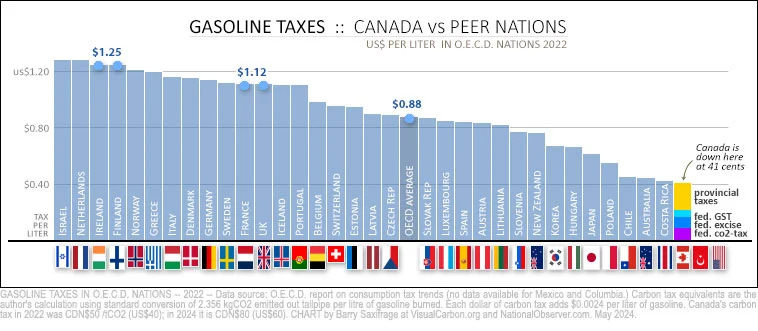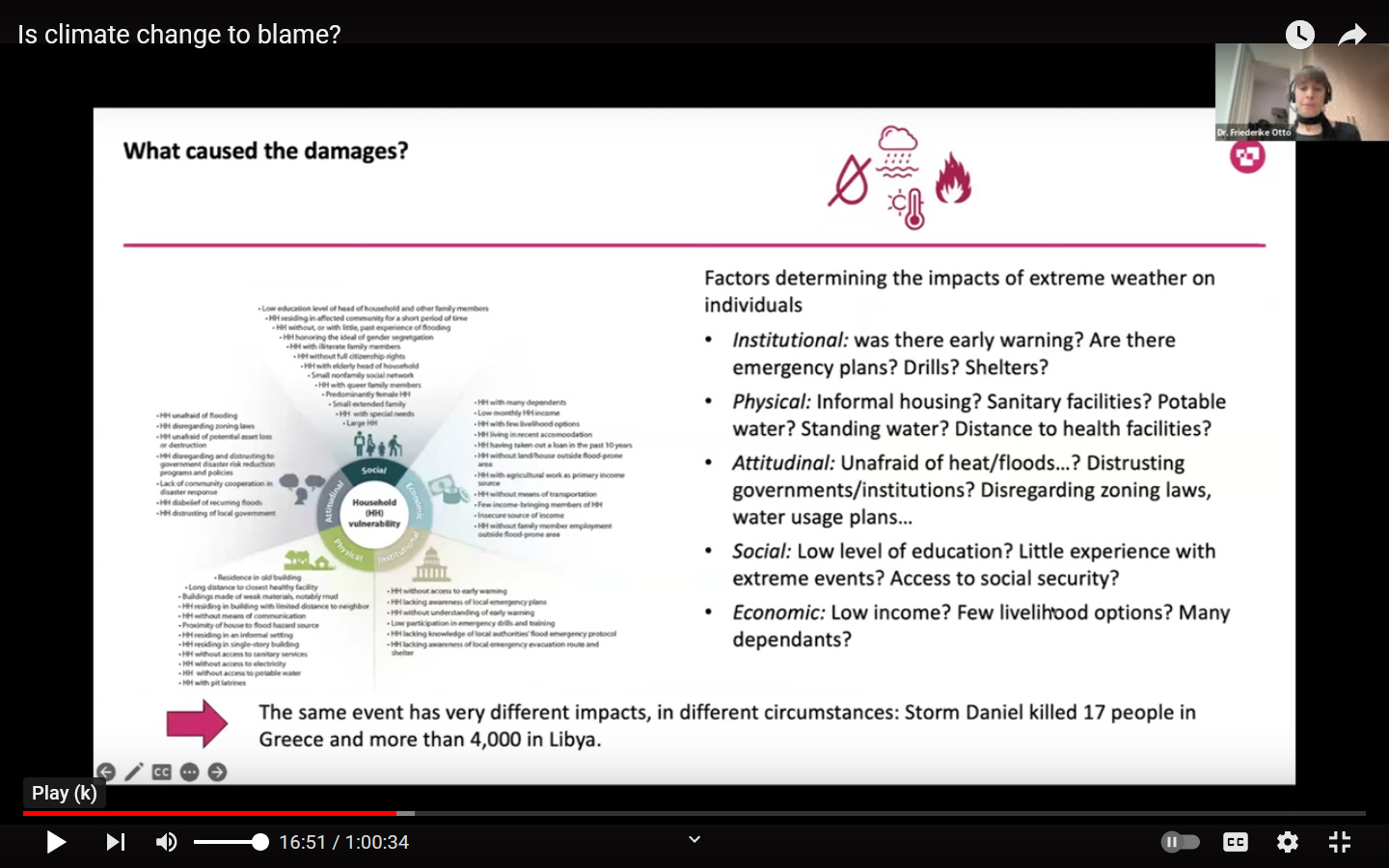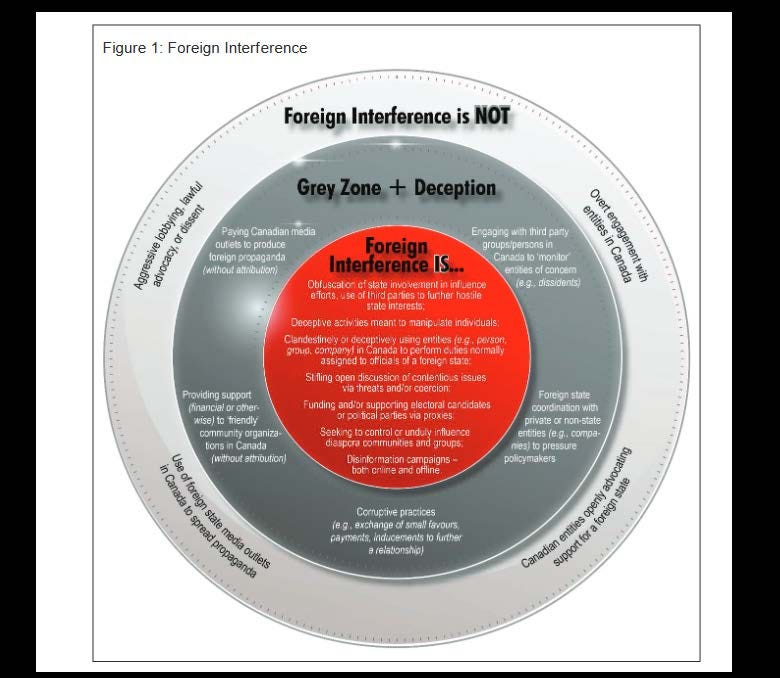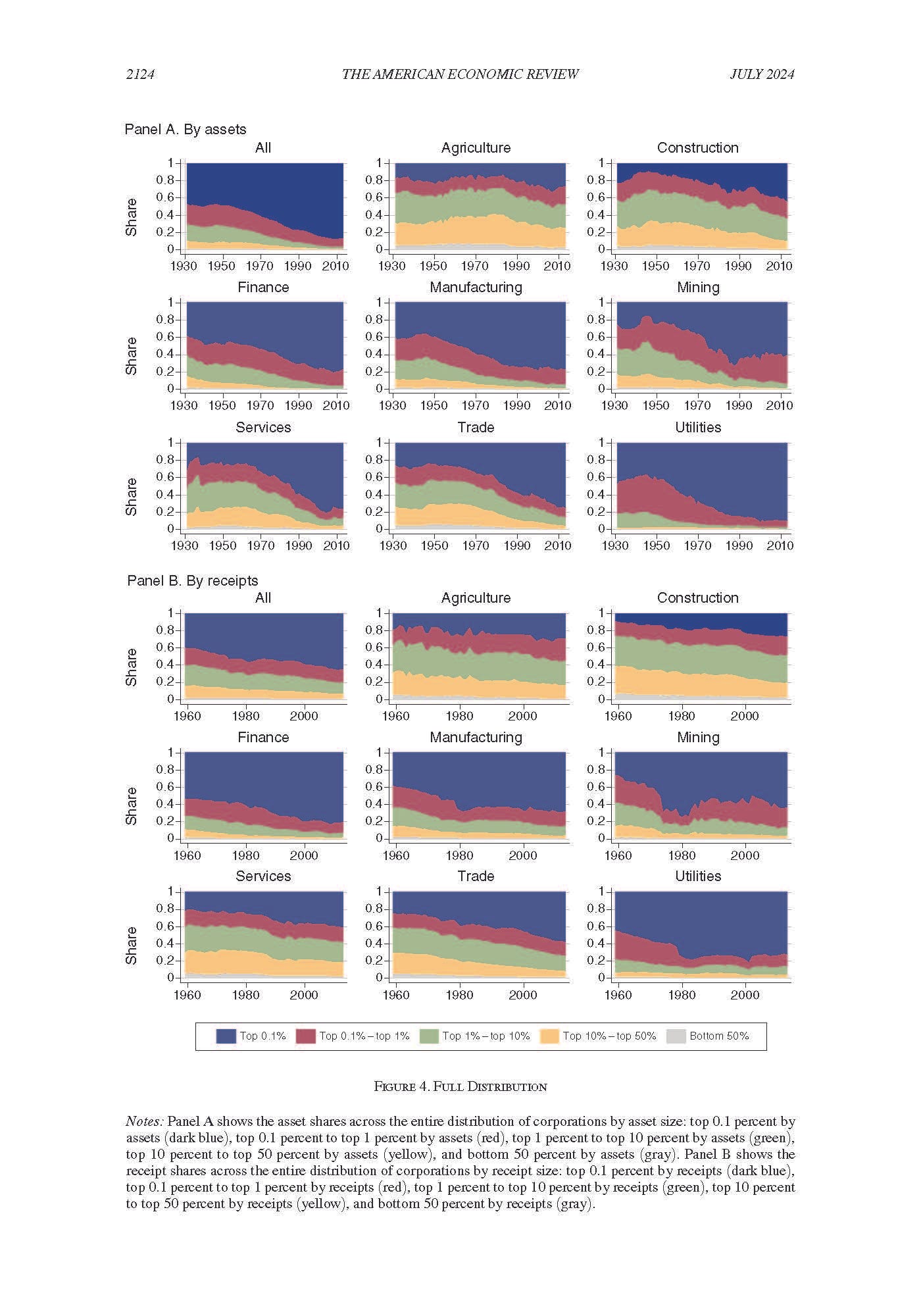The History of CO2 Emissions — Fossil Fuel Inefficiency — Antonio Guterres’ ‘mot juste’ — The Planet’s Temperature — Asbestos in our Drinking Water — Political Party Financing in Europe — Axe the Tax, not — Ukraine: A 1938 Moment? — Attribution Science and what Really Matters — Medieval Lion Emojis — Wealth Distribution Update — Mark Carney — The Tyee’s fundraising Success — Living sustainably in Tompkins County, NY — In Memoriam Frederick Crews — Islamophobia and Foreign Interference — Anti-Woke: Intersectionality of Hate — Smartphones in Schools — National Orchestra of Korea — Outlaw Commercial Surveillance — Payam Akhavan — Long Term Corporate Concentration — The Trump-Biden Debate
June 3. An excellent set of interactive graphics on the history of CO2 emissions, 1950-2020, by the World Resources Institute:
https://www.wri.org/insights/history-carbon-dioxide-emissions
One example:
Fossil Fuel Inefficiency
June 4. A new report from the Rocky Mountain Institute puts in stark focus how much energy is wasted in the journey from fossil fuel extraction to utility derived from its use.
In financial terms … the loss of 379 EJ per year means we waste some $1 trillion per year in energy spending on the supply side, and another $3.6 trillion on the demand side. That adds up to $4.6 trillion per year, which averages out to about $600 wasted annually per person globally. This represents 40% of total global spending on energy, or about 5% of global GDP, which is roughly double the annual investments into the energy system every year. (Data derived from an IEA report, World Energy Investment 2023, IEA https://www.iea.org/reports/world-energy-investment-2023.)
The transformation of our energy system will see vast improvements in efficiency:
Renewables. Wind and solar energy can be generated almost entirely without losses as they require effectively no extraction or processing energy, nor suffer major thermal losses like fossils.
Localization. Locally generated renewables eliminate the need to ship and pipe fuels around the world, and, where possible, distributed generation of electricity at the point of demand (e.g., rooftop solar) avoid the need to transport energy altogether.
Electrification. Technologies such as heat pumps and electric vehicles eliminate most wasted energy in producing heat and work and are two to four times more efficient than natural gas boilers or ICEs respectively.
As Chris Hatch points out in his June 9 CNO Newsletter,
that means switching to renewables is a much smaller task than it seems. We don’t have to replace all the fossil energy we currently produce, not even close. A world running on clean energy would use much less energy overall and still get all the same services.
(Notwithstanding that Western societies will need to become less wasteful as well — demand fewer ‘services.’)
(This report is also featured in Bill McKibben’s Substack newsletter, The Crucial years, of June 11.)
Update - 1 July
With thanks to subscriber JM, here is the Lawrence Livermore National Laboratory’s flow chart covering all energy technologies. Looking at only the fossil fuel sources (excluding nuclear), it looks like 66% is “rejected.” This compares well with the 62% shown in the RMI report.
Source: https://flowcharts.llnl.gov/
António Guterres speaks up again
June 5. A powerful speech (once again) by UN S-G António Guterres at the American Museum of Natural History in New York which, among other things, endorsed the banning of advertising from fossil fuel companies. More quotable quotes (the man sure has a way with words, or has an excellent speech writer), as reported in The Guardian:
https://www.theguardian.com/environment/article/2024/jun/05/antonio-guterres-un-chief-fossil-fuels-advertising
In a nod to the venue of his speech, Guterres said that “like the meteor that wiped out the dinosaurs, we’re having an outsized impact. In the case of climate, we are not the dinosaurs – we are the meteor. We are not only in danger – we are the danger.”
Guterres lauded the growth in clean-energy deployment, amid record levels of investment in wind, solar and other renewable sources, predicting that “economic logic makes the end of the fossil-fuel age inevitable”, but added that governments must hasten the phase-out of fossil fuels.
Countries are currently working on new pledges on how they will cut emissions until 2035, with these promises to be delivered by next year. Governments have not kept pace with previous pledges, however, with emissions rising to a new record level last year at a time when they must be halved by 2030 to avoid the worst climate effects.
The Planet’s Temperature
June 6. With thanks again to Chris Hatch’s CNO Newsletter of June 9, here is a tell-all graph from the EU’s Copernicus Institute:
Note that the previous El Niño in 2015-16 was stronger than the one we’re going through now (*) so it is not to blame. What more do climate deniers need to be shut up?
(*) From Jim Hansen’s blog, 12 Jan 2024: “The three most recent strong El Ninos are 1997-98, 2015-16, and 2023-24. … the three El Ninos successively decrease in magnitude, with the 2023-24 El Nino notably unimpressive.“
Asbestos in our Drinking Water
June 6. Prevent Cancer Now held a press conference with the Green Party about asbestos in our drinking water — an issue Health Canada has been in denial about for decades.
From left to right, Julian Branch, Member, and Meg Sears, Chair of Prevent Cancer Now; Elizabeth May and Mike Morris, Green Party MPs.
Some straightforward facts from Julian Branch, starting at 18:13, to 19:44. At the end, Elizabeth May is at her most eloquent again, starting at the 22:55 mark, to 23:45.
Some quotes from the PCN/Asbestos page:
As of December 2018 all new uses of asbestos have been banned in Canada, but:
Underground, out of sight and out of mind, asbestos remains in infrastructure, including asbestos cement (AC) water pipes. These rapidly-deteriorating pipes were installed in Canada from the 1930s into the 1990s, and they shed asbestos into water. Unfortunately, Canada does not yet regulate asbestos in drinking water. Assessment by Health Canada dates to 1989.
Canada continues to dismiss decades of scientific research that swallowing asbestos fibres is harmful — knowledge that led to US regulation of asbestos in drinking water over 30 years ago. Evidence that drinking this carcinogen is harmful has only strengthened over the years, but asbestos-cement pipes still deliver drinking water to many Canadians.
For Meg Sears’ opinion article on the issue in the CNO of June 21, go here.
She tells me that there are about 15 km of pipes in Ottawa that are made of asbestos cement. That’s 15 km too many but nothing compared to what is present in some Prairie cities.
Political Party Financing in Europe
June 7. A major investigative report coordinated by The Guardian and conducted by the NGO Follow the Money, assesses the degree of transparency in the financing of political parties in Europe. Forty-nine journalists in 24 countries were involved; 1,200 financial reports and about 500,000 individual donations to 231 political parties between 2019 and 2022 were examined.
The Guardian article. The report. (Both were published on May 30.)
Some startling findings:
Only for 3 out of every 10 euros that are donated is the name of the donor made public. For over 660 million euros in donations between 2019 and 2022 the origin is hidden. Almost half of these hidden donations were for German parties.
France and Belgium do not publish any names of donors, citing privacy; all donations is Spain are also anonymous. Others have various thresholds and exemptions such as donations by politicians or party officials. At the other extreme, anyone who donates even 1 euro to a political party in Estonia or Latvia will find their name on the public record, published quarterly.
Countries in Central and Eastern Europe tend to be more transparent, especially in the Baltic countries. Post-Communism, these countries adopted new rules before joining the European Union.
Populist, far-right and far-left political parties receive a quarter of all the private funding. (The project uses party labels as defined on PopuList. (“Far-left” primarily refers to the Communist Parties in Greece and Portugal.)
Do note the context that in the majority of countries, money from the state is the most important income stream. In Spain, Hungary and Portugal non-public funds represent less than a quarter of available funding, and in Belgium and Ireland non-public funding makes up just about 15 per cent of parties’ income. In Germany, Italy, Bulgaria, Malta and The Netherlands parties depend on private donations for more that 50% of their income.
Lack of transparency breeds corruption. A related EU report on a 2023 survey of perceptions of corruption — a 26K sample, just over 1K in each country, half of that in three small jurisdictions — finds that 6 out of 10 Europeans think corruption is “widespread” among political parties in their country (the top choice among 15 institutions; politicians come second).
Axe the tax, not
June 7. Straightforward as always, Barry Saxifrage in the CNO shows how silly the “Axe the Tax” argument is (which Skippy has now expanded to all federal gasoline taxes, at least for the summer. That would really be welcomed by municipalities who receive a good chunk of the proceeds).
And lest we forget, and not unrelated:
While we've been increasing our climate pollution, the Europeans have cut theirs by a third. Germany and the U.K. have done the hard work to cut their emissions in half. And both have reduced their transportation emissions along the way.
(Look here — scroll to near the end — for the all-telling chart comparing Canada’s emissions with those of the other G7 countries, the UK and the EU.)
The War in Ukraine: Are We in a 1938 Moment?
June 8. Patrick Wintour, Diplomatic Editor of The Guardian, asks: Are we in a 1938 moment now?
https://www.theguardian.com/world/article/2024/jun/08/putin-war-ukraine-forgotten-lessons-of-history-europe
In 1938 tensions in Abyssinia, Japan and Germany were treated as isolated events. Tim Snyder re-imagines 1938…
…as a year in which Czechoslovakia, like Ukraine in 2022, had chosen to fight: “So you had in Czechoslovakia, like Ukraine, an imperfect democracy. It’s the farthest democracy in eastern Europe. It has various problems, but when threatened by a larger neighbour, it chooses to resist. In that world, where Czechoslovakia resists, there’s no second world war.”
Snyder said such an outcome had been possible. “They could have held the Germans back. It was largely a bluff on the German side. If the Czechs resisted, and the French and the British and maybe the Americans eventually started to help, there would have been a conflict, but there wouldn’t have been a second world war.
“Instead, when Germany invaded Poland in 1939, it was invading Poland with the Czech armaments industry, which was the best in the world. It was invading with Slovak soldiers. It was invading from a geographical position that it only gained because it had destroyed Czechoslovakia.”
In 1934-35, what Winston Churchill termed the “locust years”, and again after the Munich agreement, Britain did not put the time to good use, instead allowing Germany to race ahead in rearmament.
…one of the lessons of the 1930s, and those locust years, is that organising for rearmament entails planning and not just false reassurances, which were the stock in trade of Chamberlain and his predecessor Stanley Baldwin.
One prominent Ukrainian military adviser said the reality was that the Russian arms industry could now churn out 4.5m shells a year, each costing about only $1,000 to manufacture. Meanwhile, in Europe and the US, a total of 1.3m shells were being produced at an average cost of approximately $4,000. That means Nato is 10 times less efficient, and struggling to locate explosives.
Flowers, not tomatoes, greeted the French prime minister Édouard Daladier, to his surprise, when he returned from Munich in 1938. Knowing full well the threat posed by Hitler, and that he and Chamberlain had betrayed Czechoslovakia, the only democratic country in central eastern Europe, he turned to his counsellor and said of the cheering crowds: “Bunch of fools.”
Attribution Science and how to Talk about it… but what’s Really Important
June 12. With thanks to Chris Hatch’s June 23 CNO Newsletter for the link, a 1-hour set of presentations on how attribution science works and how to talk about it. This was a Yale School of the Environment event, moderated by Dr. Jennifer Marlon, Senior Research Scientist at the School. Panelists were Dr. Friederike Otto, Dr. Andrew Pershing, and Dr. Laura Thomas-Walters. The groups working on this are World Weather Attribution (Grantham Institute for Climate Change and the Environment, Imperial College, London) and Climate Central, which developed the 5-days-ahead Climate Shift Index based on WWA’s calculations.
I wouldn’t wager my fortune on the robustness of this latest form of applied science, although, granted, Otto’s explanation may have just touched the surface,1 but was relieved to see it put into perspective. Here is Otto’s last slide:
This resonated with the first question asked after the presentations: Why does attribution science matter? The communicators’ answer is of course that it links the abstract idea of climate change with what people actually experience which is true enough. But let’s not forget that what really matters extreme-weather-wise, is what causes the damages and who suffers most.
Link to the presentation:
Update - July 9
The federal government is now going whole-hog on attribution ‘science’:
https://www.canada.ca/en/environment-climate-change/news/2024/07/canada-releases-first-results-from-rapid-extreme-weather-event-attribution-system.html
Beware.
June 14. With thanks to old friend Adam Caldwell, a step up from emojis:
June 14. Wealth distribution in Canada update:
…Statscan noted that most wealth is held by relatively few households. For example, in the final quarter of 2023, more than 90 per cent of net worth was held by households that own a home. Those in the bottom 20 per cent of the wealth distribution have negative net worth – meaning, their liabilities exceed the value of their assets.
https://www.theglobeandmail.com/business/article-household-wealth-jumps-to-record-on-stock-rally/ [paywall]
June 17. Mark Carney’s 13-minute speech at the US-Canada Summit.
Snippets: Liberal values are being mocked around the world, yet Can/US is what the rest of the world wants to move to. A series of shocks have lowered to pace of growth, making coping with risks a greater challenge. Trade has not grown since 2008. Decarbonization is the driver of competitiveness. We can no longer rely on the rules of trade. We need to build our core competencies and help build a new order, based on our values: liberty, responsibility, solidarity, sustainability, and dynamism. Canada needs a new plan & be the US’ most trusted trading partner. We must realize we have less to spend because we have become less productive. The solution is not trickle-down economics. We need to invest in affordable housing, universal health care, education for all & all times, a clean economy. And Canada must pull its full weight in NATO.
I can’t wait for him to enter politics and raise the level of discourse.
June 19. Wow, in a little over three weeks The Tyee has raised over $120,000 to fortify its coverage of upcoming elections in B.C. and Canada — a message from Jeanette Ageson, publisher. Another example of member-supported journalism thriving. (I’m a Tyee Builder.)
Tompkins County: Sustainability in Practice
June 20. Dave Rollo, in the Steady State Herald, describes Tompkins County in the Finger Lakes area of upstate New York as a hub of sustainability in practice:
https://steadystate.org/tompkins-county-the-finger-lakes-hub-of-sustainability/
The City of Ithaca, the County, Cornell University and several grass-roots organizations including Sustainable Finger Lakes, all contribute to a culture of sustainability and its infrastructure.
The County’s 2015 Comprehensive Plan is based on sustainability principles, regional cooperation and fiscal responsibility.
The three overarching principles create the context for a range of sustainability policies and programs within the County. They also encourage efforts in the wider region. The principles have led to county successes in promoting compact urban form, in combating water pollution in the Finger Lakes watershed, and in banning hydrofracking.
…
An essential advocate in the regional multi-county approach to sustainability is Sustainable Finger Lakes. It acts as a “convener, connector, and catalyst to engage the grassroots and policymakers in redesigning how we work and live…”
Sustainable Finger Lakes takes inspiration from the work of Gus Speth and his systems approach to sustainability.
In Memoriam Frederick Crews
June 21. Frederick Crews, long-time contributor to the New York Review of Books, died today at age 91. His dethroning of Sigmund Freud (ref. Lisa Appignanesi‘s review of his 2017 book, Freud: The Making of an Illusion, in the NYRofB of October 26 that year) is one of those moments when a long-held belief shifts forever. (A vigorous exchange between Crews and Appignanesi followed.) From the book’s description:
…drawing on rarely consulted archives, Frederick Crews has assembled a great volume of evidence that reveals a surprising new Freud: a man who blundered tragicomically in his dealings with patients, who in fact never cured anyone, who promoted cocaine as a miracle drug capable of curing a wide range of diseases, and who advanced his career through falsifying case histories and betraying the mentors who had helped him to rise. The legend has persisted, Crews shows, thanks to Freud's fictive self-invention as a master detective of the psyche, and later through a campaign of censorship and falsification conducted by his followers.
(Crews was a faculty member at UC Berkeley from 1958 till his retirement in 1994 but his name didn’t mean anything to me then even though he had a leading role in the anti-Vietnam war movement at the time.)
The New York Times’ obituary appeared in the Globe and Mail on June 26.
Islamophobia and Foreign Interference
June 24. Yes we have them here too: A March 24 report by Atlantic Council’s Digital Forensic Research Lab documents a network of islamophobists centered on a group calling itself United Citizens for Canada (UCC) that is polluting social media:
https://dfrlab.org/2024/03/28/inauthentic-campaign-amplifying-islamophobic-content-targeting-canadians/
Thanks to Crawford Kilian at The Tyee of June 14 for making reference to this, and also for extracting this handy scheme from the June 3 NCICOP report on foreign interference
Smartphones in Schools
June 24. For once I largely concur with something coming out of the Fraser Institute: An op-ed by Paige MacPherson and Tegan Hill about the use of smartphones in K-12 schools:
https://www.theglobeandmail.com/opinion/article-albertas-new-smartphone-restrictions-wont-eliminate-digital/ [paywall]
Some useful facts:
…80 per cent of Canadian students report being distracted by the digital devices of other students in math class – and across OECD countries, students who were distracted by smartphones in math class scored 15 points lower on PISA math tests than those who were not distracted.
Note that, though the first smartphones appeared in 1992, they did not become ubiquitous until fifteen years later with the introduction of the iPhone in 2007.2
Alberta’s PISA math scores have fallen 45 points in the past two decades (from 2003 to 2022), which PISA equates to more than two years of lost learning, with the decline predating COVID-related school closings.
So there likely is more going on than smartphone distraction, but there seems to be no doubt that it is an aggravating factor.
Anti-‘Woke” : ‘Intersectionality of Hate?’
24 June. ‘Woke’ has lost all operational meaning, argues Tyee associate editor Olamide Olaniyan.
The word “woke” has come to span seemingly disparate issues from gender and sexual rights to health care to education to climate change.
He then interviews Francis Dupuis-Déri, a professor at Université du Québec à Montréal who has written a book about “anti-woke” discourses in the United States, France and Quebec.
Columbia Law School professor Kimberlé Crenshaw coined the term intersectionality in 1989, to describe overlapping systems of power that shape realities and experiences.
French historian Christine Bard in 2019 found that “the intersectionality of hate is associating feminism, homosexualism, Islamism and ‘immigrationism’ and that public figures are targeted with particular intensity if they are not only women, but also Jewish, Muslim or of African origin.”
Says Dupuis-Déri:
The anti-woke movement is a copycat of the anti-political-correctness movement that made a lot of noise around 1990, at the end of the Cold War.
Unfortunately, this framework, which seems to hold up well in North America, fails in part in France:
In France, the far-right Rassemblement National party increasingly presents itself as gay-friendly, to reject homophobia on the side of Islam, and there are also Islamophobic and transphobic feminists.
These paradoxical figures are not necessarily easy to explain, and undoubtedly go beyond the framework of the intersectionality of hatred.
Reader Sarah comments about the use of the word ‘woke:’
My understanding is that the word is supposed to mean learned, knowledgeable, wise. Not the idiotic meaning that the Right Wing have switched it too. Talk about the smell of 1984.
Too late. Language evolves.
National Orchestra of Korea
June 25. Had a 1-hour immersion into Korean culture this evening by attending the Opening Ceremony of the 2024-2025 Korea-Canada Year of Cultural Exchanges — a free concert at the NAC featuring the National Orchestra of Korea. It played on mostly traditional Korean instruments and performed exclusively Korean music, except for one piece, Hymne au printemps, which used text and music from Félix Leclerc (1914-1988). All performers (except a Canadian soprano, Caroline Anne Roussel) wore Korean dress. Most impressive was Jang Seo-yoon, who sang Song of the Gourd, a pansori tale. (Pansori is a form of musical entertainment dating from the 17th Century. Hear an example of her singing here.)
Outlaw Commercial Surveillance
June 26. Adin Wagner, in an op-ed in the Globe & Mail, expresses my own thoughts: Personal data should not be for sale, full stop:
https://www.theglobeandmail.com/business/commentary/article-the-law-should-treat-personal-data-like-human-organs-not-for-sale/ [paywall]
He draws a parallel with organ donations which also have been excluded from market transactions because of the likely side-effects (exploitation of vulnerable people). Prohibiting the sale of personal data would severely hamper Big Tech’s business model but would serve society well.
…commercial surveillance has fractured the media landscape, facilitated fraud and made it so that personalized data are driving our TV preferences to the extent that no one is watching the same shows any more – all of which, taken together, seems corruptive, exploitative and downright creepy.
Check out the link in that quote: It’s a September 2023 post by Cory Doctorow. A quote from it:
There is no consensual basis for mass commercial surveillance. The story that "people don't mind ads so long as they're relevant" is a lie. But even if it was true, it wouldn't be enough, because beyond the harms to being our authentic selves that come from the knowledge that we're being observed, surveillance data is a crucial ingredient for all kinds of crime, harassment, and deception.
Payam Akhavan
June 27. Another in the series reminiscing about earlier Massey lectures, celebrating 60 years: Human rights lawyer Payam Akhavan harks back to his 2017 lectures, In Search of a Better World. He speaks with Ideas producer Chris Wodskou. As a kid, Akhavan and his family, members of the Bahá’í faith, fled Iran to Canada in 1979 and “has served as legal counsel in cases before the International Court of Justice, the International Criminal Court, the European Court of Human Rights, and the Supreme Courts of Canada and the United States.“ Among other things he reminded listeners of the execution of 16-year old Mona, his classmate, and seven other young Bahá’í girls because they dared speak up for freedom. (That was long before the 2022 protests at the death of Masha Amini.)
A 78-minute documentary based on his lectures and book is available on CBC Gem.
Corporate Concentration
June 27. This just in: US concentration of businesses has been going on for at least 100 years — it’s not a “recent” phenomenon. Three economists have put data together from 1918 to 2018. The trends are consistent across all industries. Here is just one graph showing shares by the top 0.1% of corporations, top 1%, top 1-10% etc. that illustrates this for assets (Panel A, 1918-2018) and receipts (Panel B, 1959-2018):
(Source: Spencer Y. Kwon, Yueran Ma, and Kaspar Zimmermann, “100 Years of Rising Corporate Concentration,“ American Economic Review 2024, 114(7): 2111–2140. https://doi.org/10.1257/aer.20220621)
The Trump-Biden Debate
June 27.
But seriously, Trump constant lying and blustering – that was expected; Biden stumbling over his words – that too was expected. Trump showing vigour and pugnaciousness – I knew that. But Biden looking like a really old man, I confess that that came as bit of a shock.
For a critical assessment of attribution science, see “Overstating the effects of anthropogenic climate change? A critical assessment of attribution methods in climate science” by Laura García-Portela and Douglas Maraun, Eur J Philos Sci. 2023; 13(1): 17, published online March 11, 2023. doi: 10.1007/s13194-023-00516-xm. The paper concludes that both the storyline and the probabilistic approach have their weaknesses.



